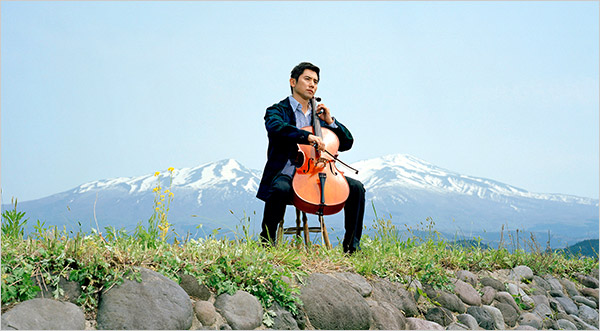
Tokyo Gore Police (2008) – Society and Violence
admin
- 0
littlecellist.com – Tokyo Gore Police (2008), directed by Yoshihiro Nishimura, is a Japanese cult film that pushes the boundaries of horror, action, and satire. Known for its over-the-top gore, absurdly creative violence, and deep social commentary, the film quickly gained a reputation as one of the most extreme and bizarre films of its time. Set in a dystopian future where privatized police forces reign supreme, Tokyo Gore Police is a fearless, graphic exploration of a world consumed by corruption, bloodshed, and moral decay.
This audacious film blends elements of body horror, exploitation, and surrealism, creating an unsettling yet captivating experience that is equal parts grotesque and satirical. The film’s unapologetic gore, complex characters, and politically charged narrative make it a unique and unforgettable entry in the genre of Japanese extreme cinema. Tokyo Gore Police is not just a gore-fest—it’s a dark commentary on the nature of violence, capitalism, and the human body.
Plot Overview: A Futuristic Tokyo Overrun by Violence
Set in a near-future Tokyo, Tokyo Gore Police takes place in a world where the government has privatized its police forces. These “police corporations” are tasked with dealing with the outbreak of “engineered mutants” known as “Engineers,” who are criminals that possess grotesque, often weaponized body modifications. When someone becomes an Engineer, their body mutates in horrifying ways—transforming them into monsters with deadly appendages that are often used for violence and destruction.
The film follows Ruka (played by Eihi Shiina), a hard-as-nails female cop working for the privatized police force. As an expert in fighting Engineers, Ruka is tasked with hunting down these monstrous individuals, many of whom were once human but have been transformed through genetic experimentation. Ruka’s personal journey is intertwined with her brutal past—her father, once a key figure in the police force, was killed by an Engineer, which drives her relentless pursuit of these criminals.
As Ruka delves deeper into the world of Engineers, she uncovers dark secrets about the origins of the mutations and the corporations behind them. Her quest for revenge against the Engineers leads to a violent showdown, where the boundaries between human and monster, law and chaos, become increasingly blurred. The film is packed with intense, often grotesque action scenes, as Ruka and other characters confront violent and horrific mutations, all while exploring themes of power, corruption, and societal decay.
Themes: Capitalism, Corruption, and the Exploitation of the Body
At its core, Tokyo Gore Police is a sharp critique of capitalism, corporate greed, and the commodification of violence. The film is set in a world where the government has outsourced law enforcement to private corporations, creating a corrupt and brutal system where money and power drive every aspect of society. The privatization of the police force leads to a lack of accountability, with corporations profiting from violence and perpetuating an endless cycle of suffering and exploitation.
The Engineers themselves serve as a metaphor for the exploitation of the human body. Their horrific mutations—limbs transformed into deadly weapons, faces contorted into grotesque forms—represent the physical consequences of societal abuse and the loss of personal agency. In this world, the human body becomes a commodity, a tool for violence, and a means of control. The film uses body horror to make a bold statement about the dehumanizing effects of unchecked corporate power and the commodification of individuals.
In addition to its critique of capitalism, Tokyo Gore Police also examines themes of revenge, trauma, and identity. Ruka’s quest for vengeance is deeply personal, as she seeks justice for the death of her father, who was killed by an Engineer. Throughout the film, Ruka’s journey is marked by her struggle to retain her humanity in the face of overwhelming violence. Her evolving relationship with her own body and identity mirrors the transformations taking place in the world around her, as she is forced to reconcile her violent actions with her desire for justice.
Visual Style: Over-the-Top Gore and Stylized Violence
One of the most distinctive features of Tokyo Gore Police is its unapologetically extreme gore and violence. The film is infamous for its graphic depictions of bodily mutilation, with characters often being torn apart, dismembered, or transformed into grotesque creatures. The violence in the film is so exaggerated and over-the-top that it becomes almost cartoonish, yet its shock value is undeniable.
The special effects, created by the legendary Yoshihiro Nishimura, are a major highlight of the film. Nishimura, known for his work in films like The Machine Girl (2008) and Vampire Girl vs. Frankenstein Girl (2009), employs practical effects and prosthetics to create highly detailed and imaginative mutations. The Engineers’ transformations into grotesque, weaponized forms are presented with painstaking detail, showcasing the film’s commitment to practical effects over CGI.
The film’s blood-soaked action sequences are executed with a sense of dark humor and surrealism, as characters engage in extreme combat with exaggerated violence. The use of vibrant colors and stylized shots adds to the film’s unique visual language, making it feel like a hyper-real, twisted version of a comic book or graphic novel.
The extreme violence, though shocking, serves a narrative purpose. It reflects the corrupt and chaotic world in which the characters exist, where the human body is reduced to a tool for destruction. The visceral images are designed to evoke both disgust and fascination, forcing the audience to confront the unsettling consequences of a society that glorifies violence and exploitation.
Social Commentary: Violence and the Loss of Humanity
Beneath the gore and bloodshed, Tokyo Gore Police is deeply invested in exploring the impact of violence on society and the individual. The film portrays a dystopian world where violence has become normalized, where the line between law enforcement and criminality is blurred, and where human beings are turned into grotesque instruments of war. In this society, the police corporations are not interested in justice—they are only concerned with maintaining power and profiting from the violence they unleash.
The film’s portrayal of the Engineers, who are often victims of genetic experiments gone wrong, further underscores the dehumanizing effects of corporate greed. These individuals, once human, have been transformed into monstrous figures, a reflection of society’s willingness to sacrifice its own for profit and control. In this sense, the Engineers symbolize the loss of humanity in a world that values exploitation over compassion.
Tokyo Gore Police also serves as a critique of the relationship between the state, the police, and the citizenry. The privatization of law enforcement and the lack of oversight create a morally bankrupt system where the powerful are allowed to perpetuate violence without consequence. This bleak portrayal of a dystopian future echoes real-world concerns about the increasing influence of corporations in governmental affairs and the erosion of individual rights.
Legacy and Influence: A Cult Classic of Extreme Cinema
Upon its release, Tokyo Gore Police quickly became a cult classic, gaining a following among fans of extreme and exploitative cinema. Its unapologetic gore, innovative special effects, and unrelenting critique of capitalism and violence made it an unforgettable film in the landscape of Japanese and international horror. The film’s boldness and refusal to shy away from shock value have made it a touchstone for fans of splatter and grindhouse cinema.
While the film is not for everyone—its graphic content and relentless violence can be overwhelming for some—it has earned a dedicated fanbase that appreciates its subversive nature and boundary-pushing style. Tokyo Gore Police is frequently cited as a key film in the subgenre of “J-horror” and “Japanese splatter,” along with other films like The Machine Girl and Vampire Girl vs. Frankenstein Girl. Its unique blend of gore, satire, and social commentary has influenced numerous filmmakers working within the genre, and it remains a prime example of the kind of extreme, transgressive cinema that emerged from Japan in the early 2000s.
Conclusion: A Blood-Drenched Satire of Violence and Society
Tokyo Gore Police (2008) is a film that doesn’t pull any punches. Its grotesque violence, hyper-stylized visuals, and biting social commentary make it one of the most unique and daring films of its kind. The film’s critique of capitalism, corruption, and the exploitation of the human body is cleverly masked beneath layers of over-the-top gore and absurd humor. Whether you find it horrifying or fascinating, Tokyo Gore Police stands as a bold statement in the realm of extreme cinema, offering an unforgettable, blood-soaked ride through a dystopian world of chaos and corruption.
For fans of boundary-pushing horror, satire, and grotesque body horror, Tokyo Gore Police is an essential experience. It may not be for the faint of heart, but for those willing to dive into its disturbing world, the film provides a dark and twisted reflection of society, violence, and the human condition.


